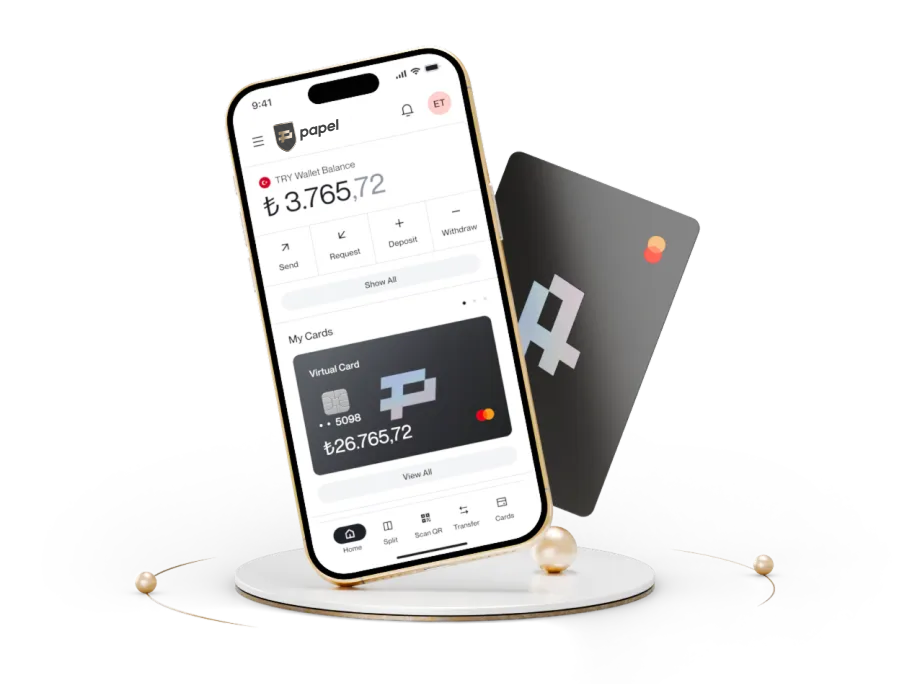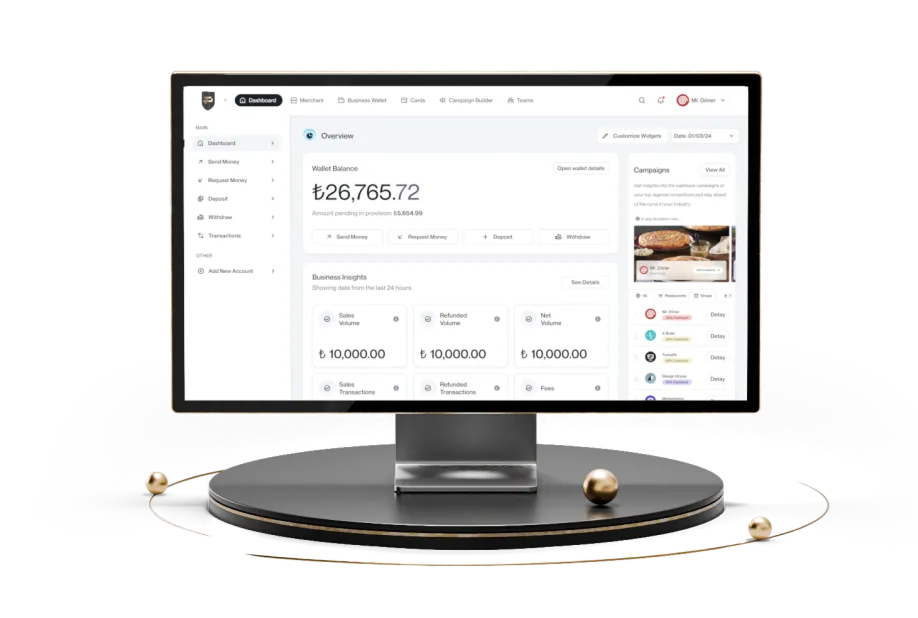Transforming Assets into Tokens: What is Tokenization and Why is it Important?
As asset management and trade processes evolve with digitalization, a revolutionary innovation is reshaping the investment landscape by introducing greater transparency, reliability, and speed. Tokenization, the process of converting physical or digital assets into blockchain-based digital representations known as "tokens," is at the heart of this transformation. What exactly does this mean, and why is it so critical? This article delves into the details to help you understand its significance.
What is Tokenization?
Tokenization refers to converting physical or digital assets into digital tokens using distributed ledger technologies like blockchain. The primary goal is to enable the secure, transparent, and efficient trading of assets. Tokenization also increases liquidity, broadens investors' accessibility, and facilitates seamless ownership transfers.
This concept applies to both physical and digital assets, relying on the principle of dividing an asset into digital fragments for representation. For instance, when real estate is tokenized, it is digitally segmented into tokens, each representing a proportional share of ownership. This innovation allows individuals to participate in high-value investments with smaller amounts of capital. Tokenizable physical assets include real estate, artwork, and precious metals, while digital assets encompass digital content, in-game items, and intellectual property rights. By streamlining asset transactions and ensuring security, tokenization not only modernizes financial systems but also supports the creation of a more inclusive economy.
Types of Tokens
In the digital ecosystem, tokens cater to various needs and use cases, gaining value based on their functionality and purpose. The most common types of tokens include:
- Cryptocurrencies
- Utility Tokens
- Security Tokens
- NFTs (Non-Fungible Tokens)
Cryptocurrencies
Cryptocurrencies are digital currencies operating on blockchain technology, such as Bitcoin and Ethereum. These decentralized tokens are widely used for value storage, payments, and trading. Their decentralized nature ensures secure, fast, and transparent transactions among users.
Utility Tokens
Utility tokens grant access to specific services or products within a platform. For instance, users of blockchain-based platforms purchase utility tokens to utilize certain features or execute transactions.
Security Tokens
Security tokens represent real-world assets (e.g., real estate or stocks) in digital form and are primarily used for investment purposes. These tokens provide ownership rights or dividends and are regulated similarly to traditional securities, offering legal protections.
NFTs (Non-Fungible Tokens)
NFTs are unique, non-interchangeable digital assets that represent singular items such as art, music, collectibles, or in-game items. Unlike other tokens, NFTs carry distinct identities, making them irreplaceable. They are particularly popular in digital art and collectibles.

The Tokenization Process
The tokenization process involves several key steps:
Asset Digitization
For physical assets like real estate, relevant documentation, and details are digitized. For digital assets, existing characteristics are prepared for tokenization.
Blockchain Integration
The digitized asset is stored securely and made transferable, and its transaction history is recorded on a blockchain. This ensures transparency and eliminates intermediaries.
Smart Contracts
Automated agreements enforce specific conditions. For example, a smart contract can instantly transfer ownership upon payment during a token sale. This streamlines operations reduces costs, and prevents errors.
In summary, tokenization enhances liquidity, broadens investment access, and optimizes financial transactions through digitization, blockchain infrastructure, and smart contracts.
Applications of Tokenization
Tokenization is revolutionizing various industries by enhancing accessibility and transparency. Here are some prominent use cases:
- Real Estate
- Finance
- Art and Digital Content
- Supply Chain and Logistics
Real Estate
Real estate is a leading sector for tokenization. Properties can be divided into digital tokens, enabling smaller investors to participate in large-scale projects. For instance, when a building is tokenized, each token represents a fractional share of ownership, simplifying property ownership and increasing market liquidity.
Finance
In finance, tokenization involves digitizing financial instruments like stocks, bonds, and other assets. Tokenized securities allow faster, lower-cost transactions and are more accessible to global investors. Moreover, fractional ownership democratizes access to high-value assets, boosting liquidity.
Art and Digital Content
Tokenization in art and digital content often takes the form of NFTs, which uniquely represent artworks, music, videos, and other creative assets. NFTs protect ownership rights, facilitate direct sales for creators, and offer collectors unique ownership opportunities.
Supply Chain and Logistics
In supply chain management, tokenization tracks the journey of products from production to the end consumer. Blockchain-based tokens record every stage of a product's lifecycle, enhancing security and reducing fraud risks. This application is especially valuable for food, pharmaceuticals, and luxury goods.
What Are the Advantages of Tokenization?
Tokenization modernizes asset management and transfer processes, offering numerous advantages:
- Increased Liquidity
- Enhanced Accessibility
- Transparency and Trust
- Faster and Cost-Effective Transactions
- Fractional Ownership
- Secure Operations
- Global Investor Reach
Increased Liquidity
Tokenization allows traditionally low-liquidity assets (such as real estate or artwork) to be divided into smaller units. This enables a broader range of investors to access large assets with smaller investments, significantly boosting market liquidity.
Accessibility
Tokenization removes geographic and financial barriers, making it easier for global investors to access assets. With just a digital wallet and an internet connection, anyone can invest in tokenized assets from anywhere in the world.

Transparency and Reliability
Tokenization leverages blockchain technology to record transactions transparently and immutably. Asset ownership details and transaction histories are stored on the blockchain, reducing the risk of fraud and enhancing trust between parties.
Transaction Speed and Cost Efficiency
By automating transactions through blockchain and smart contracts, tokenization eliminates the need for intermediaries. This speeds up transactions and reduces costs. For example, selling a tokenized real estate asset can be completed much faster than traditional processes.
Fractional Ownership
Tokenization makes investing easier by dividing an asset into smaller units. This is a significant advantage for small investors, as it allows them to invest in high-value assets with smaller amounts of capital.
Secure Transactions
Tokenization ensures the security of assets and transactions through the robust infrastructure of blockchain. Cryptographic methods and smart contracts prevent unauthorized access and interference, creating a secure transaction environment.
Attracting Global Investors
By digitizing assets, tokenization makes them accessible on a global scale. This creates a significant opportunity for companies and individuals looking to attract investors beyond borders.
The Potential of Tokenization
Tokenization has the potential to drive transformative changes across various industries. For example, tokenized real estate enables small-scale investments and boosts liquidity, while NFTs empower artists to maintain ownership rights and secure direct revenue. Similarly, tokenization in supply chains ensures transparency, reduces fraud and enhances security.
To realize its global potential, tokenization requires harmonized regulations to ensure investor protection and market security. Establishing robust legal frameworks and fostering international cooperation is key to accelerating the adoption of tokenization for cross-border applications.
FAQs
What is Distributed Ledger Technology (DLT)?
DLT is a digital record system where data is stored simultaneously in multiple locations, enabling secure and transparent operations without a central authority.
What are RWAs?
RWAs (Real World Assets) refer to traditional financial assets like real estate, commodities, bonds, or stocks that are digitized on a blockchain. RWAs offer increased liquidity, accessibility, and transparency for investors.
“The information presented in this blog post is of a general nature only and does not constitute legal, financial or investment advice. The content has been prepared for informational purposes and it is recommended that you seek professional advice for your specific circumstances. The statements contained in the article do not create any binding obligations or responsibilities and reflect only the author's assessments. You are solely responsible for the decisions you take and Papel Elektronik Para ve Ödeme Hizmetleri A.Ş. does not accept any liability in this context.”

